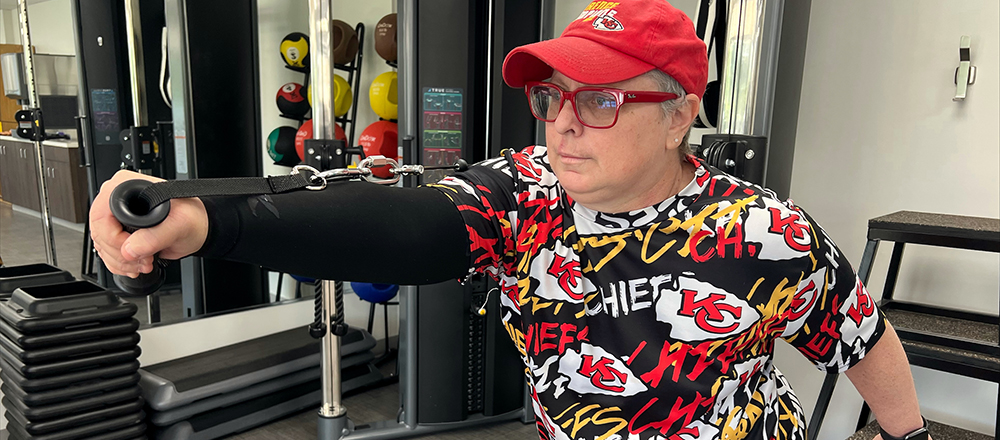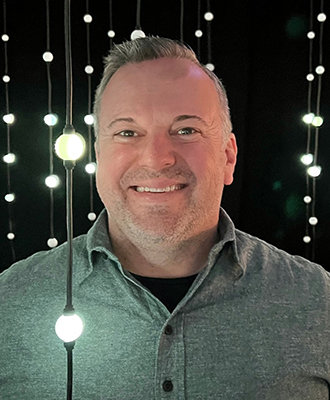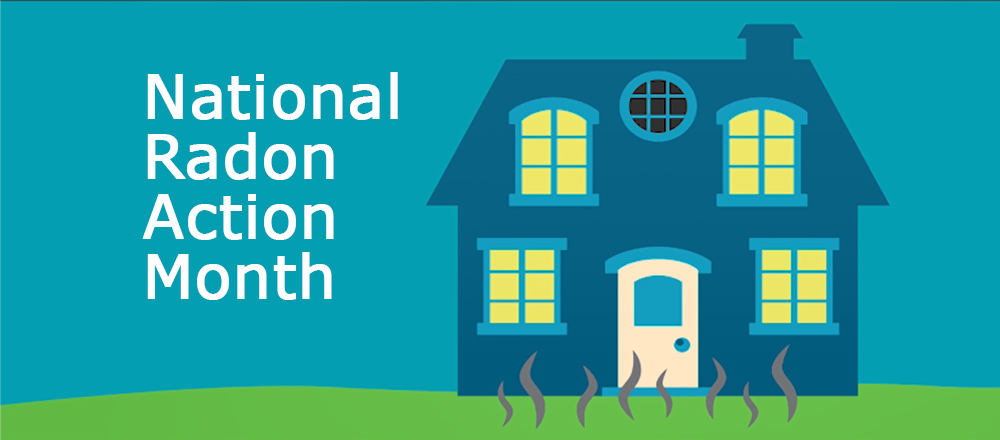
Trish Griffin is a breast cancer survivor. After a double mastectomy and eight rounds of chemotherapy, she wants to help others like her.
“It’s important for cancer patients to know the resources out there,” Trish said. “If it helps one person, I've done a good job.”
The Diagnosis
Get Screened
Screening mammograms can catch cancer early, before you even have symptoms and when it is most treatable. Walk-in or make an appointment with our Women's Imaging Center today.
On July 6, 2022, Trish went to the doctor for her annual physical and first mammogram. The scan didn’t find any lumps, but it did reveal calcium deposits within the breast tissue that can indicate breast cancer. After a Magnetic Resonance Image and biopsy, Trish learned she had triple-negative breast cancer (TNBC) on August 2.
“I did regular self-exams and never noticed anything,” she said. “It was like having a handful of sand spread on the floor. There wasn't the typical lump or mass, it was spread throughout.”
TNBC accounts for 10-15% of all breast cancers. It’s called Triple Negative for the lack of HER2 protein, estrogen or progesterone receptors in the cancer cells. TNBC grows fast and often spreads once found, making it more likely to return after treatment.
Chemotherapy
Trish’s cancer spread outside her right breast and into nearby lymph nodes. According to the American Cancer Society, regional TNBC has a five-year relative survival rate of 66%. Her doctors recommended surgery as soon as possible.
On August 24, 2022, Trish had a double mastectomy. A month later, she began chemotherapy.
“I started with 'The Red Devil,’” she said of the combination of cancer drugs Adriamycin and cyclophosphamide, also known as AC. “That’s dose-dense AC, the strongest chemo you can do. I did four doses a week, every other week over eight weeks. There was a lot of pain, but I did all four rounds.”
Trish then went through four more rounds of treatment with Taxol, an anti-cancer chemotherapy drug. The treatment damaged the nerves in her hands and feet, and the pain and numbness forced her to use a walker. Yet, she never quit.
Cancer Rehab
North Kansas City Hospital and Meritas Health is the only health system in the area recognized as a Physiological Oncology Rehabilitation Institute (PORi) Center of Excellence. NKCH’s cardio-oncology rehabilitation program (CORE) played a key role in Trish’s cancer rehabilitation.
Trish suffered severe complications from chemotherapy. The CrossFit enthusiast struggled to raise her arm due to axillary web syndrome, a tightness in the connective tissue in her arm that limited her range of motion. She was also swollen from lymphedema, a buildup of excess fluid in the body.
Occupational therapist Brenda Ruhnke, OTR/L, CHT, CLT, and physical therapist Michelle McCullough, DPT, worked with Trish at NKCH Physical Therapy & Sports Medicine – Creekwood.
“Trish began chemotherapy just after we started working with her,” Brenda said. “That helped us better understand how the treatment affected her. We used manual therapy techniques to address soft tissue tightness in her chest and upper back, and manual lymphatic drainage for the swelling in her arm. We also focused on improving her upper body strength and overall endurance. She was dedicated to her therapy regimen, and we helped get her back to her regular daily activities.”
Gratitude
Trish won’t say she is cancer free, only that her oncologist found no evidence of the disease in her body. She will start breast reconstruction this month. She feels stronger every day and gives her therapists all the credit.
“I was terrified of getting sick and having to accept that,” Trish said. “Brenda and Michelle were there, and I could talk to them. They help you up when you think ‘I'm never going to be able to use my arm again.’ When you get your arm back, you get your freedom back. They help you see it’s not over.”
Trish’s life is slowly returning to normal. She is working out again. She walks three miles on her treadmill and uses her 30-pound kettlebell every day. Her journey isn’t over, but she’s grateful for the help she got along the way.



